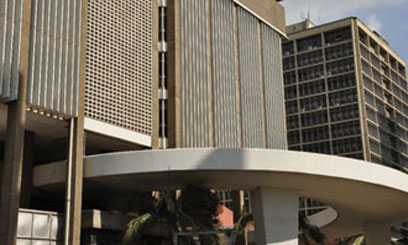
The Bank’s Monetary Policy Committee (MPC) noted that the overall monthly inflation declined from 7.21 percent in January 2014 to 6.86 percent in February/FILE
Despite the continued CBK single digit interest rate, local commercial banks continue to charge customers up to 17 percent in lending rates.
A recent biannual monetary policy report study by CBK showed that large banks had interest spreads of up to 12percent, medium sized banks at 9.57 percent while small banks stood at 9.55 percent.
In the latest meeting the CBK’s Monetary Policy Committee (MPC) noted that the overall monthly inflation declined from 7.21 percent in January 2014 to 6.86 percent in February.
“This is an indication that the monetary policy stance has continued to support a stable inflation rate and that private sector credit growth during the period was non-inflationary,” CBK Governor Njuguna Ndung’u who chairs the MPC said in a statement after the meeting on Tuesday.
On exchange rate, the Kenya shilling to US dollar rate fluctuated within a narrower range of Sh86.06 and Sh86.58 in February 2014 compared to a range of Sh85.46 and Sh86.96 in January 2014.
The CBK increased its level of usable foreign exchange reserves from Sh532.9 million at the end of December 2013 to Sh541 million at the end of February 2014.
“The build-up in reserves in the period was mainly attributed to commercial banks selling foreign exchange to the CBK,” Ndung’u said.
He said the Central Bank Rate (CBR) continued to coordinate movements in the short-term interest rates while the liquidity management operations adopted by the CBK sustained the interbank market stability.
The banks says confidence in the economy also remained strong with activity at the Nairobi Securities Exchange (NSE) reflecting a buoyancy of the NSE-20 index which stood at 4,933.41 at the end of February 2014 from 4,856.15 at the end of January 2014.
Diaspora remittances remained resilient and continued to average above Sh9.5 billion per month between July 2013 and January 2014.
This was further supported by the MPC Market Perception Survey conducted in February 2014 which showed that the private sector expects inflation and the exchange rate to remain stable for the remainder of 2014.
Furthermore, the private sector firms sustained their optimism for a strong growth in 2014.


































